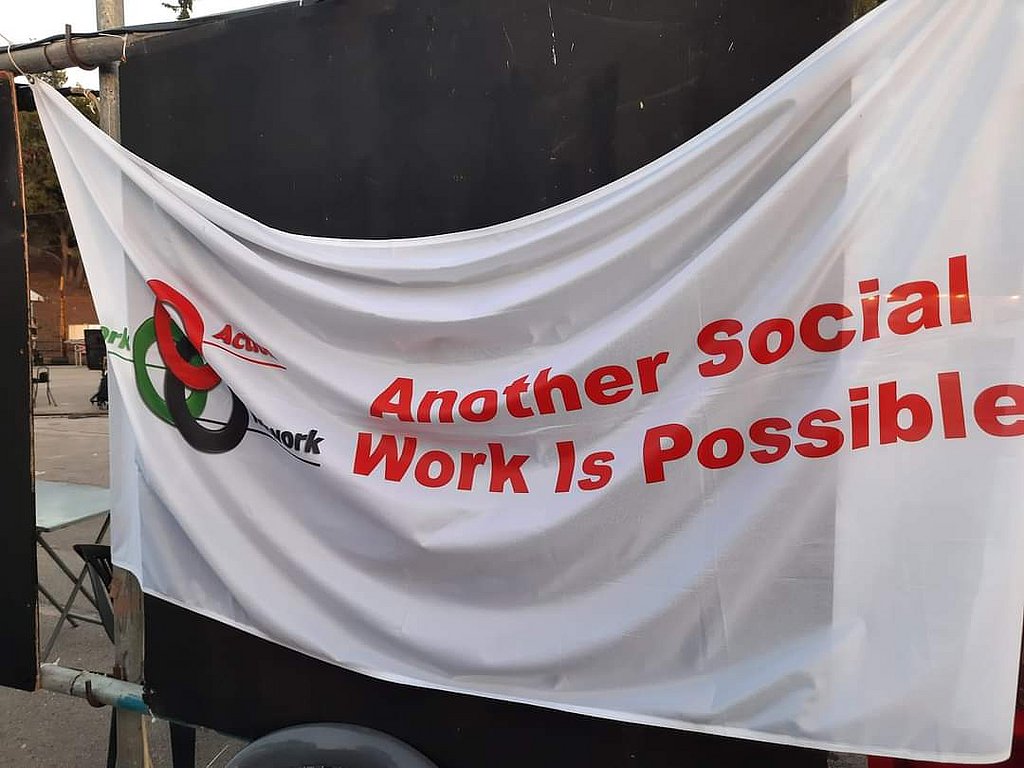What are the main issues that social workers face in their frontline work with unaccompanied minors (UAM)?
Since social work cannot be considered independently from the broader context in which it is exercised, I would argue that structural difficulties are the main source of problems for frontline social workers. Bureaucracy, managerialism of immigration and the restriction on autonomy are some aspects of the neo-liberal policies of social work in Greece. Social workers are often called to work in understaffed shelters, with short-term contracts and no supervision. Therefore, it can be stated that the working conditions of the professionals affect their relationships and work with minors.
In addition to that, a dilemma that social workers often experience in their work with UAM is that the minors abscond from the shelters. This problem cannot be overstated because it results in the exposure of the already vulnerable minors to high risks, for example homelessness, troubles with police, or their being taken into protective custody. It also reveals weaknesses in the asylum system. Research conducted in 2017 indicated that delays in the granting of asylum and family reunification procedures were found to be the most reported reasons for UAMs absconding from shelters and even from the country. UAMs’ cases can sometimes be difficult and challenging. They often include traumatic experiences and psychiatric illnesses. The situation can be exacerbated when there are no care or health services that are suitably adapted to minors’ needs. Also, it is unfortunate that in rural areas the centralization of health care and asylum services discriminates against UAMs’ rights and needs.
Regarding family reunification cases, the role of social work has an impact on enabling access to the asylum determination procedures. Can you describe the process and the possible difficulties that arise?
Referring to Greece specifically and to the European asylum system (EAS) generally, under Dublin Regulation III, family reunification cases involving UAM and other family members proceed very slow and with difficulty. Family reunification is not only a human right but is also an integral part of the immigration process. The right to family reunification is set down in a series of international documents, as is the “best interest of the child” being a paramount consideration. But, despite these assurances, the EAS seems to be harsh and selective. Often non-discrimination is omitted as an integral part of the principle of equality. From the very beginning, we know that some UAMs are more likely to receive a positive decision because of their nationality, and that the process varies from country to country. This fact causes even more anxiety and stress to minors. The stressful conditions under which these children live are reinforced by the complexity of the asylum determination system. The EAS cannot be characterized as a child-friendly system, while domestic laws vary greatly from country to country. More importantly, the right of UAM to know their rights in the host country is most often violated already upon entry to that country. Social workers working with minors on family cases should ensure that first the children know their rights and, second, receive information appropiate to their needs, age, and cognitive and emotional level. The information provided should cover all the stages of a family reunification case. The child’s right to be heard and be wholly informed of the procedures concerning these procedures is also of pivotal importance.
What influences the beliefs and approaches of social workers?
National and EU anti-immigration policies, in synergy with the media, have a major impact on unaccompanied asylum-seeking minors and the people who work with them. The conditions of work and the neo-liberal political context in which social work presently exists strongly impact the perceptions and approaches of social workers. In other words, it could be argued that the practical work is weakened due to inadequate equipment, ambiguous policies, and bureaucratic ineptitude. Furthermore, social workers are confronted with discriminatory national and European policies and value judgements in migration management. These systematically violate asylum seekers’, refugees’ and migrants’ rights. Consequently, social workers can be distracted and frustrated by ethical dilemmas which arise between social work values and organizational culture and policies in which they must function. Migration policies can distract social workers from the very principles of social work.
Author information:
Lefkothea Rizopoulou is a student in the Master programm Social Work as a Human Rights Profession (MA-SWHR) at ASH Berlin. She has a background in social work studies and served as a social worker in shelters for unaccompanied, asylum-seeking minors in Greece. She is a member of the Greek Social Work Action Network (SWAN) and its group focused on migration and refugee issues. Recently she published online her paper titled “Social work in shelters for unaccompanied asylum-seeking minors: Challenging the traditional model of social work and the call for critical and political reflexivity” in Critical and Radical Social Work Journal.



